Tuesday, March 24, 2020
LIC AAO & AE Previous Year Papers | Download (Prelims & Mains Exam)
VisionIAS
06:35
LIC AAO & AE PREVIOUS YEAR PAPERS (Link Below)
LIC AAO Exam Previous Year Question Papers with answers download pdf
| LIC India Previous Papers – Aptitude | Download |
| LIC AAO Old Papers – Reasoning | Download |
| Get LIC AAO English Solved papers | Download |
| Life Insurence Corporation AAO Computer Knowledge Model Papers | Download |
| Download LIC AAO Last Year Question Papers pdf | Download |
The LIC AAO Previous Year Papers from 2007 to 2016 is tabulated below:
| LIC AAO Previous Year Papers – Year | LIC AAO Previous Year Papers Free PDF Download Link |
| LIC AAO Previous Year Papers 2007 Pdf Download | Click Here |
| LIC AAO Previous Year Papers 2008 Pdf Download | Click Here |
| LIC AAO Previous Year Papers 2009 Pdf Download | Click Here |
| Click Here | |
| LIC AAO Previous Year Papers 2016 | |
| Click Here |
Insight IAS Prelims 2020 SUBJECT WISE Test 22 With Solution PDF
VisionIAS
06:27
Insight IAS Prelims 2020 SUBJECT WISE Test 22 With Solution PDF


Click Here to download Insight IAS Prelims 2020 SUBJECT WISE Test 22 With Solution
Click Here to Like our Facebook page for latest updates and free ebooks
Click Here to Like our Facebook page for latest updates and free ebooks
Monday, March 23, 2020
Raus IAS Prelims Compass 2020 Government Schemes PDF
VisionIAS
20:09
Raus IAS Prelims Compass 2020 Government Schemes PDF


Click Here to download Raus IAS Prelims Compass 2020 Government Schemes PDF
Click Here to Like our Facebook page for latest updates and free ebooks
Daily Current Affairs, 23rd March 2020
VisionIAS
19:59

1) World Water Day observed globally on 22 March
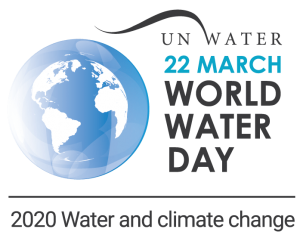
•This year, World Water Day 2020 theme: “Water and Climate Change”.
2) India celebrates “Shaheed Diwas” on 23 March
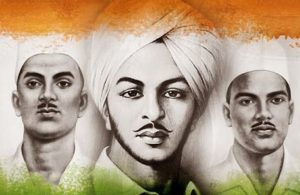
•On 23 March 1931, three Indian freedom fighters namely Bhagat Singh, Sukhdev Thapar, and Shivaram Rajguru were hanged by the British rulers in Lahore jail. The three brave freedom fighters were sentenced to death in the Lahore conspiracy case. In this manner, Bhagat Singh, Sukhdev Thapar, and Shivaram Rajguru sacrificed their lives for the goal of attaining freedom for our nation and became the face of nationalism.
•On this day, in India, Schools and colleges conducts various activities including poetry, speech or drama to pay tribute as well as to salute the revolutionaries who were not deterred even in the face of death.
3) World Meteorological Day observed globally on 23 March

•This year, World Water Day and World Meteorological Day share the same theme: “Water and Climate Change”. The focus is on managing climate and water in a more coordinated and sustainable manner because they are inextricably linked.
4) Production Incentive Scheme for Electronics Manufacturing approved
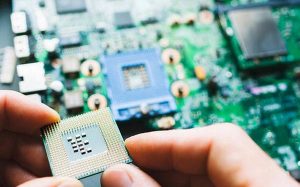
Some other key approvals of the Union Cabinet are:
•The Cabinet has also approved the scheme to promote Bulk Drug Parks to finance Common Infrastructure Facilities with financial implication of Rs 3,000 crore for next 5 years. This scheme aims to reduce manufacturing cost of bulk drugs in India and its dependency on other countries for bulk drugs.
•To promote domestic manufacturing of critical Key Starting Material/Drug Intermediates and Active Pharmaceutical Ingredients (APIs) in India, the cabinet has approved Production Linked Incentive Scheme with financial implications of Rs 6,940 crore for next 8 years.
•To reduce the burden on secondary and tertiary health care facilities, the Cabinet has approved the inclusion of AYUSH Health and Wellness Centres component of Ayushman Bharat in National AYUSH Mission.
5) Punjab becomes 1st state to impose curfew amid COVID-19
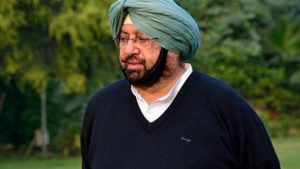
•The state government of Punjab has imposed a curfew across the state with no relaxations. The Punjab government has took this decision to stop the spread of coronavirus. With this, Punjab has become the first state in India to impose a curfew across the state.
6) Uttarakhand abolishes quota in promotion for govt employees
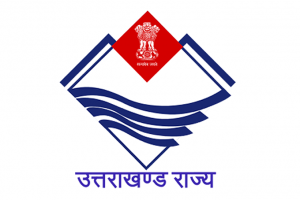
•The state government’s order as per the Supreme Court’s decision, the government has abolished the promotion ban dated September 11, 2019. Besides, the state government order dated September 5, 2012, banning reservation in promotions has also come into effect. Further action will be taken as per the order.
7) Priyanka Chopra works jointly with WHO to spread awareness over COVID-19

•The actor documented her videos on Instagram stories where she expressed the importance of only relying on authentic information about the highly contagious disease. Priyanka and her husband Nick Jonas are on day 8 of self-isolation and taking all the recommended precautions to combat the spread of the virus.
8) SIDBI to launch a special train ‘Swavalamban express’ for new entrepreneurs

Important facts about ‘Swavalamban Express’:
•The train will visit 11 cities in 15 days and will cover a 7000 km journey.
•Around 20 workshops and interactions will be held to promote entrepreneurial culture among the youth about financial and non-financial aspects of enterprise running.
•Participant individuals should be between the age of 20 and 35 years.
•The train will start from Lucknow (Uttar Pradesh-UP) and thereafter to Jammu, Delhi, Jaipur, Ahmedabad, Mumbai, Bengaluru, Hyderabad, Bhubaneswar, Kolkata and finally reach Varanasi (Uttar Pradesh).
•The train journey will also focus on the Prime Minister(PM) Narendra Modi’s vision of becoming a $5 trillion economy by 2024-25.
•It has also planned that more than 150 experts and mentors will travel together to share and meet their expertise and experiences.
9) ICICI Lombard launches policies to cover Covid-19 patients

•ICICI Lombard a private sector non-life insurance company has launched a 1 year-long “COVID-19 Protection Cover”. This policy will pay 100% of the sum insured to the COVID-19 positive individual, irrespective of hospitalization expenses. The insurance policy is in group insurance mode. It will provide value-added benefits such as Health Assistance and CHAT/Virtual assistance, teleconsultation and ambulance assistance, as part of the offering.
10) SBI launches “Covid-19 Emergency Credit Line”

•The State Bank of India has launched an additional liquidity facility “Covid-19 Emergency Credit Line (CECL)”. The facility has been launched by India’s largest lender State Bank of India to meet any liquidity mismatch for its borrowers in order to tide over the current crisis situation.
11) Fitch Ratings slashes India’s GDP growth rate to 5.1% for FY21
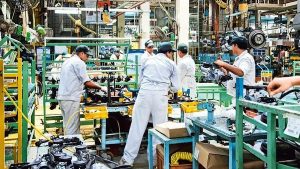
•The reduction in India’s growth outlook has been due to the Covid-19 impact on Indian manufacturers after supply chain disruptions in China.
12) A book entitled ‘Messiah Modi: A Great tale of expectations’ released
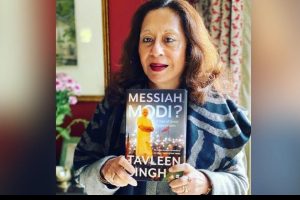
•The book was published by HarperCollins India, narrates the first support for Modi the candidate by the author, once an excellent supporter of the govt. It also talks about helpless dissatisfaction with Narendra Modi the Prime Minister (PM), his cabinet, the story of his first term as a journey from lynchings to demonetization up to Article 370, the foremost controversial law CAA (Citizenship Amendment Act), implementation of National Register of Citizens (NRC) & the guarantees he made in his first term. The author also stated that Modi is that the most isolated PM that she has seen in Delhi.
13) Satyarup Siddhanta becomes 1st Indian to complete volcanic Seven Summit
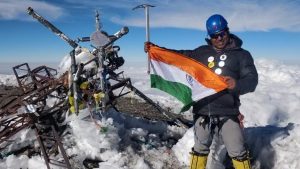
•Ojos del Salado (6,893 m) in Chile
•South America, Mount Kilimanjaro (5,895 m) in Tanzania, Africa
•Mount Elbrus (5,642 m) in Russia, Europe
•Mount Pico de Orizaba (5,636 m) in Mexico, North America
•Mount Damavand (5,610 m) in Iran, Asia
•Mount Giluwe (4,367 m) in Papua New Guinea, Australia
•Mount Sidley (4,285 m) in Antarctica.
Other achievements:
•Satyarup Siddhanta also holds Guinness Book of World Records, Asia book of records, India book of Records, Champion Book of Records, British Book of Records etc.
Limca Book of Records (LBR):
•Limca Book of Record is a book of achievements made by Indians in India & abroad in many fields of human endeavour. It is the second book of records in the world after the Guinness Book of World Records.
14) RBI to conduct variable rate Repo auctions for Rs 1,00,000 crores
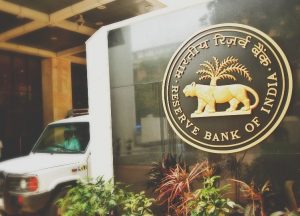
•The central bank has also decided to allow standalone Primary Dealers to participate in fine-tuning variable rate Repo auctions along with other eligible participants. All other terms and conditions which are applicable to term Repo auctions will remain the same.
The HINDU Notes – 23rd March 2020
VisionIAS
19:36

📰 Picking up the quantum technology baton
With the Budget announcement providing direction, the stakeholders need to roll-out the national mission quickly
•In the Budget 2020 speech, Finance Minister Nirmala Sitharaman made a welcome announcement for Indian science — over the next five years she proposed spending Rs. 8,000 crore (~ $1.2 billion) on a National Mission on Quantum Technologies and Applications. This promises to catapult India into the midst of the second quantum revolution, a major scientific effort that is being pursued by the United States, Europe, China and others. In this article we describe the scientific seeds of this mission, the promise of quantum technology and some critical constraints on its success that can be lifted with some imagination on the part of Indian scientific institutions and, crucially, some strategic support from Indian industry and philanthropy.
A timeline
•Quantum mechanics was developed in the early 20th century to describe nature in the small — at the scale of atoms and elementary particles. For over a century it has provided the foundations of our understanding of the physical world, including the interaction of light and matter, and led to ubiquitous inventions such as lasers and semiconductor transistors. Despite a century of research, the quantum world still remains mysterious and far removed from our experiences based on everyday life. A second revolution is currently under way with the goal of putting our growing understanding of these mysteries to use by actually controlling nature and harnessing the benefits of the weird and wondrous properties of quantum mechanics. One of the most striking of these is the tremendous computing power of quantum computers, whose actual experimental realisation is one of the great challenges of our times. The announcement by Google, in October 2019, where they claimed to have demonstrated the so-called “quantum supremacy”, is one of the first steps towards this goal.
Promising future
•Besides computing, exploring the quantum world promises other dramatic applications including the creation of novel materials, enhanced metrology, secure communication, to name just a few. Some of these are already around the corner. For example, China recently demonstrated secure quantum communication links between terrestrial stations and satellites. And computer scientists are working towards deploying schemes for post-quantum cryptography — clever schemes by which existing computers can keep communication secure even against quantum computers of the future. Beyond these applications, some of the deepest foundational questions in physics and computer science are being driven by quantum information science. This includes subjects such as quantum gravity and black holes.
•Pursuing these challenges will require an unprecedented collaboration between physicists (both experimentalists and theorists), computer scientists, material scientists and engineers. On the experimental front, the challenge lies in harnessing the weird and wonderful properties of quantum superposition and entanglement in a highly controlled manner by building a system composed of carefully designed building blocks called quantum bits or qubits. These qubits tend to be very fragile and lose their “quantumness” if not controlled properly, and a careful choice of materials, design and engineering is required to get them to work. On the theoretical front lies the challenge of creating the algorithms and applications for quantum computers. These projects will also place new demands on classical control hardware as well as software platforms.
Where India stands
•Globally, research in this area is about two decades old, but in India, serious experimental work has been under way for only about five years, and in a handful of locations. What are the constraints on Indian progress in this field? So far we have been plagued by a lack of sufficient resources, high quality manpower, timeliness and flexibility. The new announcement in the Budget would greatly help fix the resource problem but high quality manpower is in global demand. In a fast moving field like this, timeliness is everything — delayed funding by even one year is an enormous hit.
•A previous programme called Quantum Enabled Science and Technology has just been fully rolled out, more than two years after the call for proposals. Nevertheless, one has to laud the government’s announcement of this new mission on a massive scale and on a par with similar programmes announced recently by the United States and Europe. This is indeed unprecedented, and for the most part it is now up to the government, its partner institutions and the scientific community to work out details of the mission and roll it out quickly.
•But there are some limits that come from how the government must do business with public funds. Here, private funding, both via industry and philanthropy, can play an outsized role even with much smaller amounts. For example, unrestricted funds that can be used to attract and retain high quality manpower and to build international networks — all at short notice — can and will make an enormous difference to the success of this enterprise. This is the most effective way (as China and Singapore discovered) to catch up scientifically with the international community, while quickly creating a vibrant intellectual environment to help attract top researchers.
•Further, connections with Indian industry from the start would also help quantum technologies become commercialised successfully, allowing Indian industry to benefit from the quantum revolution. We must encourage industrial houses and strategic philanthropists to take an interest and reach out to Indian institutions with an existing presence in this emerging field. As two of us can personally attest, the Tata Institute of Fundamental Research (TIFR), home to India’s first superconducting quantum computing lab, would be delighted to engage.
•R. Vijayaraghavan is Associate Professor of Physics at the Tata Institute of Fundamental Research and leads its experimental quantum computing effort; Shivaji Sondhi is Professor of Physics at Princeton University and has briefed the PM-STIAC on the challenges of quantum science and technology development; Sandip Trivedi, a Theoretical Physicist, is Distinguished Professor and Director of the Tata Institute of Fundamental Research; Umesh Vazirani is Professor of Computer Science and Director, Berkeley Quantum Information and Computation Center and has briefed the PM-STIAC on the challenges of quantum science and technology development
📰 Not an unfettered right
UPSC 2020 (IAS) Prelims: Check Important Questions on Government Schemes, Acts & Organisations
VisionIAS
07:30

Get 30 most important questions asked in the UPSC IAS Prelims Exam for the years 2017-19. In our detailed analysis of these papers, we observed that a major part of 16 questions was based on the current schemes of the government, the functioning of the government bodies and Acts amended and introduced. This number reduced to 9 questions in 2018 and 5 questions in 2019.
UPSC 2020 (IAS) Prelims: Check Important Questions for Preparation of Economy Section
VisionIAS
07:24

Check 34 questions of Economy for UPSC IAS Prelims 2020 exam preparation which have been previously asked in the past year's Prelims exam. After conducting a detailed analysis we can observe that in the year 2019, 13 questions based on Economy were asked in the paper; in 2018, 15 questions and in 2017, 6 questions were asked from the Economy section.
Download Factly Magazine for February 2020
VisionIAS
07:18
Download Factly Magazine for February 2020


Click Here to download Factly Magazine for February 2020
Click Here to Like our Facebook page for latest updates and free ebooks



